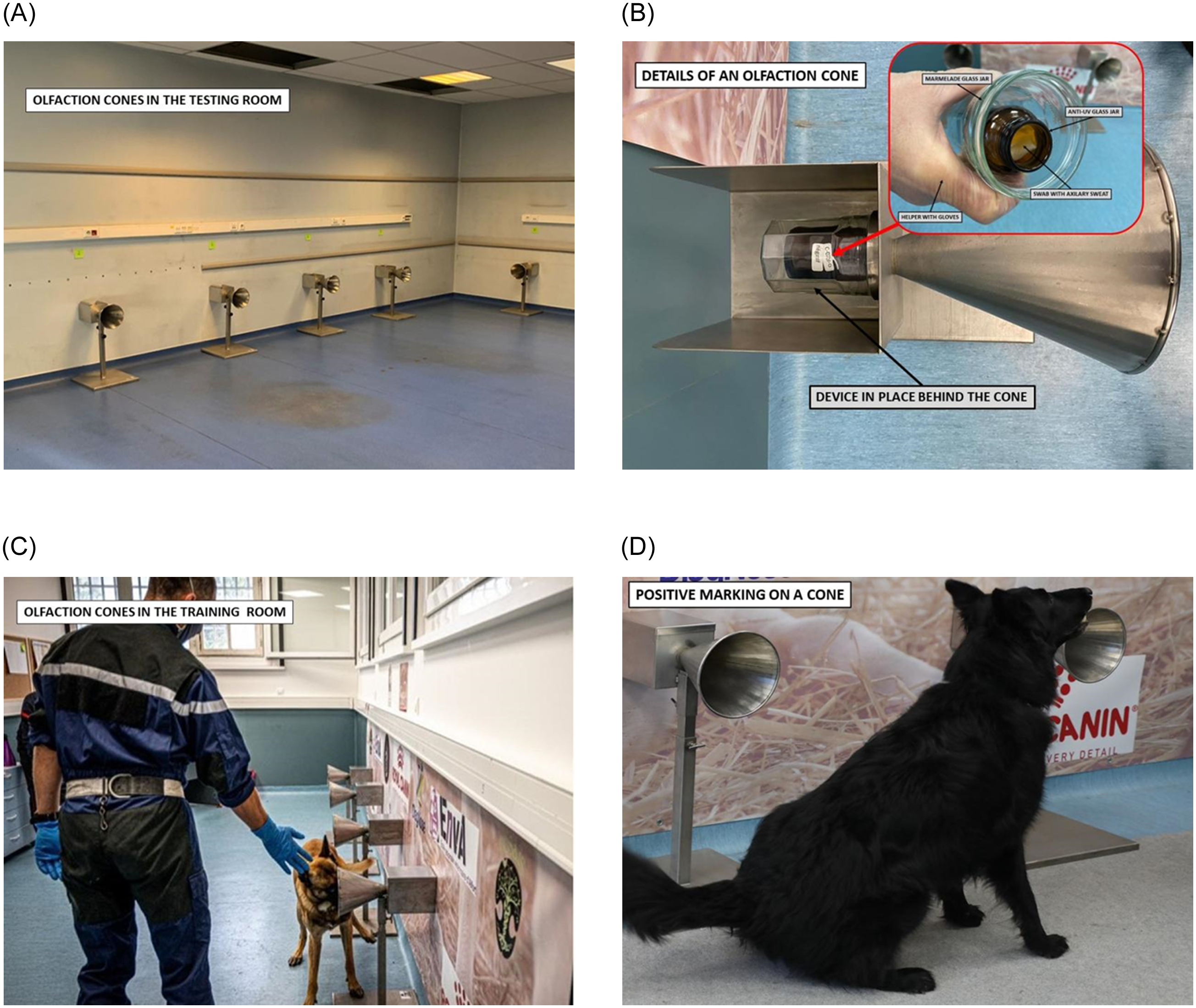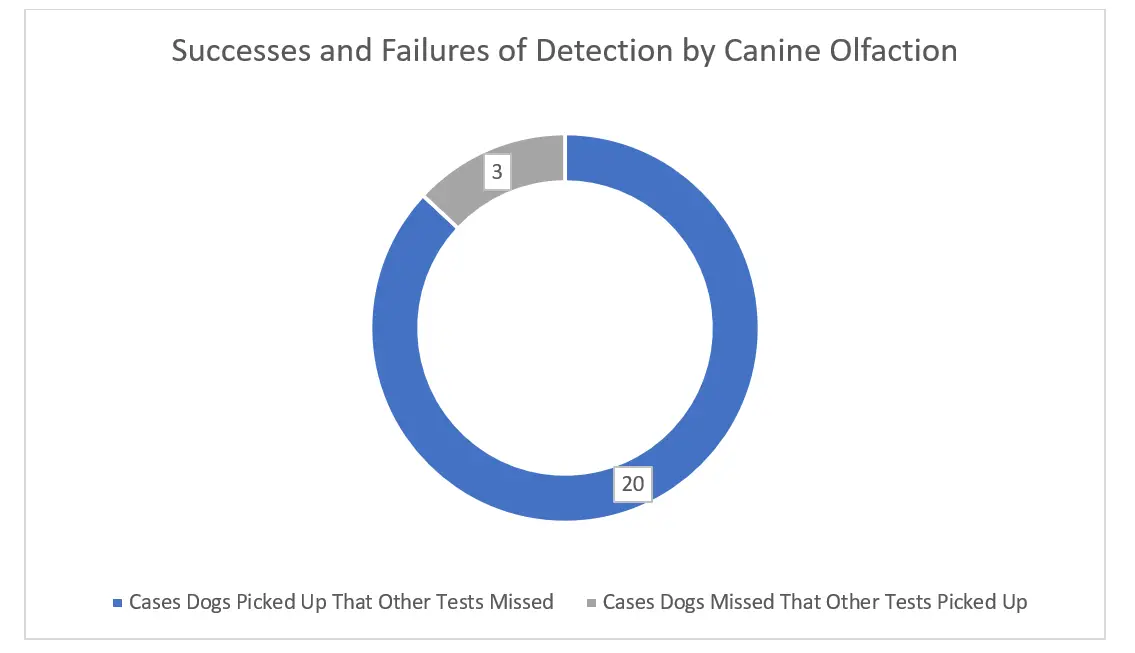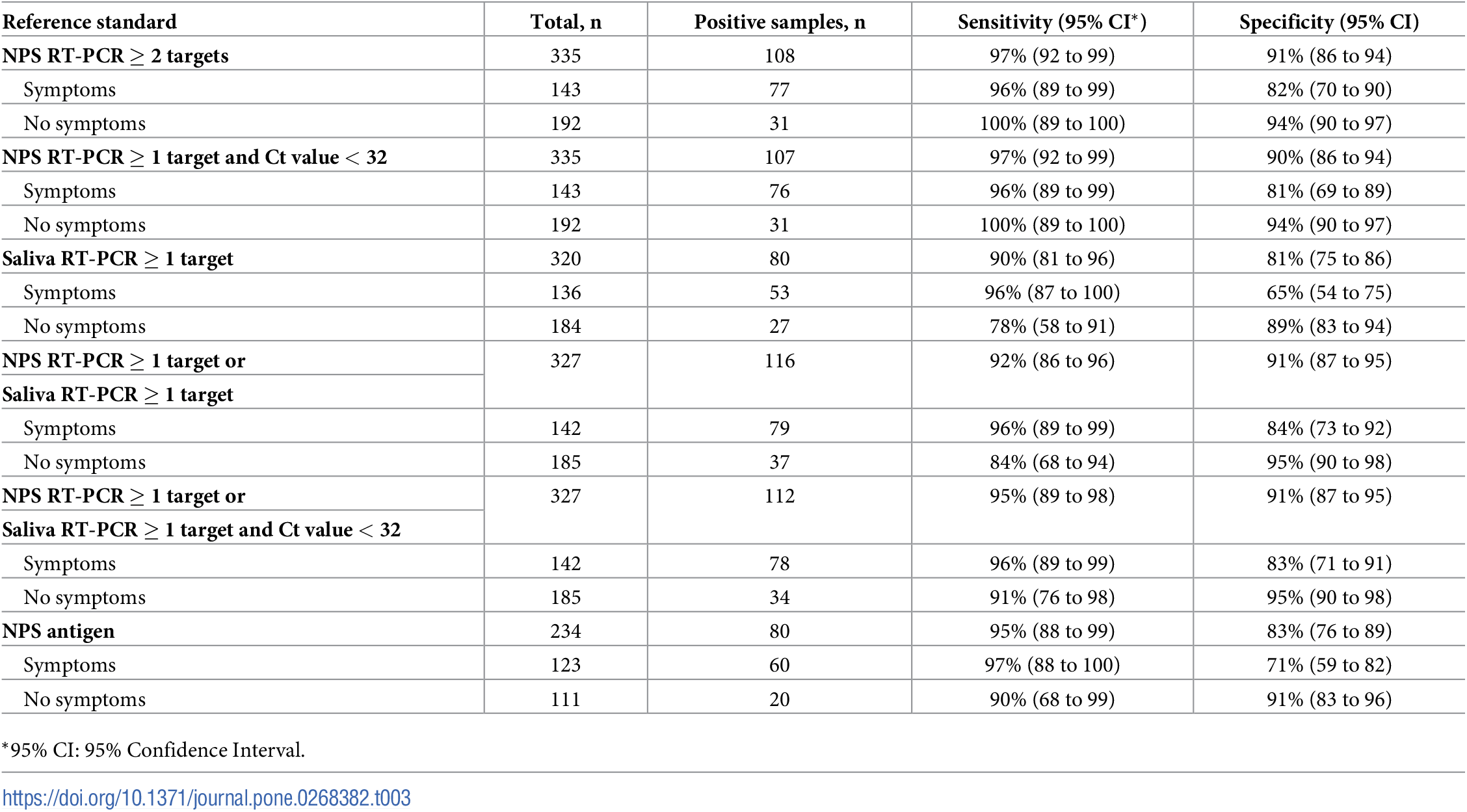A study published in June 2022 reported on results for dogs detecting COVID compared to other testing methods. It's pretty neat. Let's take a look at what the dogs found.
More...
Study into Dogs Detecting COVID
Basically, in this blinded multicenter study, researchers asked people at a two different COVID testing sites in Paris , France, between March 16 and April 9, 2021, to submit a sweat sample to test how well dogs can detect COVID infections in people.
If the 516 people asked, 335 ended up eligible for results evaluation. Reasons for disqualifications included:
- People refusing the sweat test (n=113)
- Sweat sample somehow not valid (n=2)
- Sweat sample somehow not tested by dogs (n=40)
- Sweat sample only tested by 1 dog (n=26)
How Do Dogs Detect COVID?
Test participants stuck 2 sterile surgical compresses in their armpits and kept them there for 2 minutes. Let's not get bogged down on how the samples were handled and protected until canine testing, but suffice it to say that the research team took many precautions with the samples (so-called "odor hygiene") and how the sample test room got set up and cleaned and such.
The detection room set up looked like this, with 10 metal scent cones mounted on the walls for dogs to work through. It's similar to the container selection searches that dogs do in competitive scent work, where they need to ID the ones with target odor in them.
From the photo below, it appears the dogs offer what's called a "final response" — in this case a sit. Essentially, dogs detecting COVID were trained to sit near samples that smelled like COVID.
The theory is that they can detect the odor of VOC (volatile organic compounds) that human bodies generate in response to illness.
How Long Did the Dogs Train to Detect COVID?
It depends. For dogs already familiar with odor detection, such as for finding drugs or bombs, the training time lasted about 3 weeks. For dogs green or new to the entire process of alerting to specific odors, the training took more like 5-6 weeks.
Dogs Detecting COVID Results
Of the 335 people included, 143 reported a variety of symptoms, and 192 reported no symptoms but wanted testing due to recent / possible COVID exposure. The dogs — provided by French fire departments and the Ministry of Interior of the United Arab Emirates:
- Alerted as positive for COVID in 126 cases
- Did NOT alert in 209 cases
So, how did the dogs do compared to the other types of diagnostic testing currently used? The dogs:
- Alerted to 20 cases the other tests missed
- Missed 3 cases the other tests picked up
Without getting lost in the weeds on this, test SENSITIVITY means how well does a testing method correctly ID disease. In other words, does the test result in few false negatives. Test SPECIFICITY means how well does a testing method correctly ID those without the disease. In other words, a true / trustable negative. These two measurements work inversely. If one is high, then they other is low and so forth.
Study Results Recap
The serious science-y data
"335 ambulatory adults (143 symptomatic and 192 asymptomatic) were included. Overall, 109/335 participants tested positive on nasopharyngeal RT-PCR either in symptomatic (78/143) or in asymptomatic participants (31/192). The overall sensitivity of canine detection was 97% (95% CI, 92 to 99) and even reached 100% (95% CI, 89 to 100) in asymptomatic individuals compared to NPS RT-PCR. The specificity was 91% (95% CI, 72 to 91), reaching 94% (95% CI, 90 to 97) for asymptomatic individuals."
So How Does That Compare With Other Tests?
Good question. The other COVID test types included:
- PCR (nose swab) tests as the "reference standard," which means they trust it the most
- Saliva PCR tests
- Nose swab antigen tests (like those you do yourself at home)
They also tested people for other several other viruses, including influenza strains and pneumonia strains, to rule out the chance that dogs alerted to illnesses other than COVID.
Study Results Comparison
What about nose swab at-home tests?
"The sensitivity of canine detection was higher than that of nasopharyngeal antigen testing (97% CI: 91 to 99 versus 84% CI: 74 to 90, p = 0.006), but the specificity was lower (90% CI: 84 to 95 versus 97% CI: 93 to 99, p = 0.016)."
Study Results Comparison
What about PCR Tests?
In head-to-head comparison with PCR tests using nose swabs, dogs found 17 more cases (126 compared to 109 with the PCR test).
Comparison Between Dogs Detecting COVID vs. Other Types of Tests
Here is the full comparison chart for all the tests, if you want to dig into the data yourself.
Dogs Detecting COVID, What Does This Mean?
Well, the study concludes that dogs "could be one alternative" to typical PCR testing, particularly when people need quick results.
However, they didn't have enough people negative for COVID but positive for other types of coronaviruses to "know whether or the canine detection is specific to SARS-CoV-2 or for all coronaviruses."
Could We Someday Just Get Directly Sniffed by Dogs?
Researches say that's a challenge for a few reasons:
- A lot of people are afraid of dogs
- Dogs might get contaminated by direct contact with sick people (The scent cones used protected dogs from this risk.)
- Shortage of available dogs trained in COVID detection
Wonder If I Could Teach My Dogs to Find COVID?
Part of me would LOVE to try teaching my dogs to alert to the smell of COVID — because I'm pretty sure I had it in late May, but all the at-home tests and official PCR tests came back negative.
Yet, I felt really rotten for 2 full weeks, with insane exhaustion like I've only felt before with the honest-to-goodness flu (once ... 20+ years ago) and when I had mono as a teenager. Yes, they tested me for flu and mono and even strep too. Those tests came back negative.
What makes me think it was probably COVID is that a few days before symptoms hit I suddenly had phantom licorice smells. Just sitting at my desk working and mysteriously smelled licorice off and on over several hours. What the heck?
So, who knows? I'm super excited that the better / more targeted to main strains booster vaccine will be available soon. Got my first booster in November 2021 and have been putting off the second booster until the better one became available. Whooooo! ;o)







0 comments